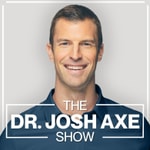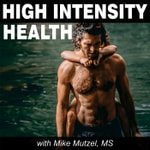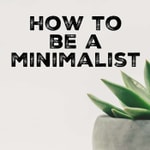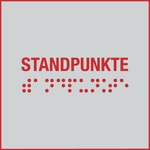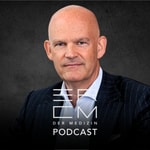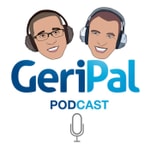Your Digital Mentor Podcast – Détails, épisodes et analyse
Détails du podcast
Informations techniques et générales issues du flux RSS du podcast.

Your Digital Mentor Podcast
Christine Boinett, Alice Matimba, Isabela Malta, Emmanuella Oppong
Fréquence : 1 épisode/27j. Total Éps: 31

Classements récents
Dernières positions dans les classements Apple Podcasts et Spotify.
Apple Podcasts
🇩🇪 Allemagne - lifeSciences
19/05/2025#85🇩🇪 Allemagne - lifeSciences
18/05/2025#75🇩🇪 Allemagne - lifeSciences
17/05/2025#68🇩🇪 Allemagne - lifeSciences
16/05/2025#58🇩🇪 Allemagne - lifeSciences
15/05/2025#48🇩🇪 Allemagne - lifeSciences
14/05/2025#41🇩🇪 Allemagne - lifeSciences
13/05/2025#20🇫🇷 France - lifeSciences
25/03/2025#87🇺🇸 États-Unis - lifeSciences
01/12/2024#97
Spotify
Aucun classement récent disponible
Liens partagés entre épisodes et podcasts
Liens présents dans les descriptions d'épisodes et autres podcasts les utilisant également.
See all- https://www.cell.com/cell/pdf/S0092-8674
40 partages
- https://www.seshglobal.org/
38 partages
- https://twitter.com/mentor_podcast
11 partages
- https://twitter.com/MonicaGandhi9
3 partages
- https://twitter.com/jennifergardy
2 partages
Qualité et score du flux RSS
Évaluation technique de la qualité et de la structure du flux RSS.
See allScore global : 62%
Historique des publications
Répartition mensuelle des publications d'épisodes au fil des années.
Mentorship and Global Health Careers
Saison 2
jeudi 22 septembre 2022 • Durée 36:53
Discussions with seasoned researchers from the TDR global 2020 Career Impact Contest, where they share different aspects of their career trajectories, including support they received via research, education and mentoring opportunities. They also share some challenges they faced, including accessing funding, lack of skills and approaches they took to overcome them. Additionally, they talk about their mentoring relationships as both mentors and mentees, and how they have been able to maintain, build, and pay-it-forward to others, through their critical work in their respective countries and in global health.
Resources
Career Impact Contest: TDR-supported scientists share their inspirational success stories (who.int)
TDR Grants: Grants (who.int)
Guest information
Dr. Rashad Abdul-Ghani, an Associate Professor and researcher at the Faculty of Medicine and Health Sciences, Sana'a University, and the Tropical Disease Research Center, University of Science and Technology, Yemen. His research focuses on parasitic diseases, neglected tropical diseases, vector-borne diseases, and public health. Learn more about Rashad’s work here:Rashad Abdul-Ghani - Google Scholar
Dr. Nadira Kurunaweera is the Chair Professor of Parasitology, Faculty of Medicine, University of Colombo, Sri Lanka, and Visiting Fellow, School of Public Health, Harvard University, USA. As a Medical Parasitologist she has extensive teaching, training and research experience in tropical diseases, especially vector-borne diseases. Her achievements have been recognized through many awards, honors and fellowships. Connect with Nadira on Twitter @medfaccmb. Learn more about her work: Professor Nadira D. Karunaweera – Faculty of Medicine (cmb.ac.lk)
Dr. Avila Montes, who is an Ex-TDR grantee with public health experience in Honduras, El Salvador, Puerto Rico and Guatemala, as an effective manager in program design, management, strategic planning, and health research related to vector borne disease control (Dengue, Zika and Chagas disease), outbreak response, maternal & child health, and HIV/AIDS control. Learn more about Avila and his work here: Gustavo Adolfo Avila Montes Profile | Special Programme for Research & Training in Tropical Diseases (tdr-global.net)
Acknowledgments
Editing by Carl Peck
Research: Emmanuela Oppong & Alice Matimba
Producers: Emmanuela Oppong (Producer), Alice Matimba (Senior Producer), Isabela Malta (Producer), Christine Boinett (Creator and Executive producer), Catherine Holmes (Marketing)
Host: Emmanuela Oppong
Media and Marketing: Catherine Holmes
Music: https://freesound.org/s/477388/
Sponsors
ACSC: https://coursesandconferences.wellcomegenomecampus.org
WSI: https://www.sanger.ac.uk
SESH: https://www.seshglobal.org/
Mentorship Part 2: Pivoting mentorship to meet community healthcare needs
Saison 2
mercredi 25 mai 2022 • Durée 24:54
The 2019 finalists of the TDR Global Mentorship Contest for improving research mentorship in low- and middle-income countries joined us to share their experiences implementing their respective projects. We had:
- Dr. Ana Maria Aguilar also discussed the pivotal shift in her community-based mentoring project in Bolivia. Her project initially focused on creating a horizontal style, participatory community mentor program, but shifted to focus on meeting the needs of the community. They began working with a community that had used herbal packages as an approach to bridge the distrust between the health sector and the local community. Connect with Ana Maria on ResearchGate.
Guest information
Prof. Aguilar is a senior pediatrician. Currently a professor in child growth and development research at the Medical College at University Mayor de San Andres in La Paz, Bolivia. She has designed and implemented health and nutrition interventions for children under five years of age for the last thirty years. She also led the conformation of the Food and Nutrition Council in Bolivia and was the First National Coordinator of the Malnutrition Zero Program until 2012. Among many of her work and achievements, she has also authored and co-authored several articles, book chapters on nutrition and child health, description of the nutritional transition in Bolivia.
About TDR Global
TDR Global is a worldwide community of passionate scientists and experts who have been working with TDR on research on infectious diseases of poverty. TDR is the UNICEF/UNDP/World Bank/WHO Special Programme for Research and Training and Tropical Diseases, based at the World Health Organization.
Resources
- Oppong, E., Bao, H., Tang, W., Mejia, M.I.E., Glozah, F., Asanga, N., Boinett, C.J., Aguilar, A.M., Valido, E., Lestari, T. and Tucker, J.D., 2021. A Global Crowdsourcing Open Call to Improve Research Mentorship in Low-and Middle-Income Countries: A Mixed Methods Analysis. The American Journal of Tropical Medicine and Hygiene, 1(aop).
Acknowledgments
Editing by Cassandra Soo
Research: Emmanuela Oppong & Alice Matimba
Producers: Emmanuela Oppong (Producer), Alice Matimba (Senior Producer), Isabela Malta (Producer), Christine Boinett (Creator and Executive producer).
Host: Emmanuela Oppong
Media and Marketing: Catherine Holmes
Music: https://freesound.org/s/477388/
Sponsors
Wellcome Connecting Science: https://coursesandconferences.wellcomeconnectingscience.org/
Wellcome Sanger Institute: https://www.sanger.ac.uk
SESH: https://www.seshglobal.org/
Skills Lab: Leadership
Saison 2 · Épisode 3
mercredi 15 septembre 2021 • Durée 39:27
Leadership might be fulfilling, but it is not easy: Our guests Marcia Philbin and Stephen Baker talk about some of the challenges they face as leaders and what skills and factors helped them succeed.
Resources
- Ted talk by Carla Harris - How to find the person who can help you get ahead at work: https://www.ted.com/talks/carla_harris_how_to_find_the_person_who_can_help_you_get_ahead_at_work?language=en
Guest information
Marcia Philbin’s Jamaican parents believed in the transformative power of education. For Marcia, this is the reason she is now a black female scientist with a PhD in chemistry, the Chief Executive of the Faculty of Pharmaceutical Medicine, and a Fellow of the Royal Society of Chemistry. @Mphil22M @FacultyFarmMed
Stephen Baker is Director of Research For Global Health in the Department of Medicine at the University of Cambridge and Honorary Faculty at the Wellcome Sanger Institute. He is a molecular epidemiologist whose career has focused on understanding how infectious disease in people in low-middle income countries evolve and spread. He was previously located at the Wellcome Africa- Asia programme in Vietnam for 12 years, where he established an internationally recognised programme of research on enteric (gastrointestinal) infections. @Baker_Lab_Cam
Acknowledgements
Editing by Mariana Vaz, https://www.marianacpvaz.com/
Research: Isabela Malta
Producers: Christine Boinett (Creator and Executive producer), Alice Matimba (Senior Producer), Isabela Malta (Producer and Research Lead), Emmanuela Oppong (Producer), Catherine Holmes (Marketing Lead).
Host: Isabela Malta
Media and Marketing: Catherine Holme
Music: https://freesound.org/s/477388/
Contact us
Email: enquiries@yourdigimentor.net
Twitter: @mentor_podcast
Support
Skills Lab: Presenting Skills
Saison 2 · Épisode 2
mercredi 1 septembre 2021 • Durée 42:26
We talked to Dr. Claire Chewapreecha and Dr. Kate Baker on tips on effective communication, presentation skills and how they have both adapted to the new zoom environment.
Resources
- Ted talk by Marcus Alexander Velazquez on effective communication: https://www.ted.com/talks/marcus_alexander_velazquez_the_art_of_effective_communication_jan_2020
- Forbes Article on effective communication within a company by Naira Velumyan: https://www.forbes.com/sites/forbescoachescouncil/2019/09/04/how-to-develop-effective-communication-within-a-company/
Guest information
Dr. Claire Chewapreecha is a Wellcome Intermediate and Sanger International Fellow based at Mahidol-Oxford Tropical Medicine Research Unit in Bangkok, Thailand. She works on melioidosis, a grossly under-recognised tropical disease, caused by a soil bacterium. Her team investigates the relationship between the host and bacterial genomics that determine melioidosis susceptibility and severity. Connect with Claire on twitter @chewapreecha
Dr. Kate Baker is a Senior Lecturer at the University of Liverpool who leads a research group on the genomic epidemiology of bacterial pathogens and antimicrobial resistance. She has won over £8m of research funding, published prolifically, and influenced public health policy and practice. Connect with Kate on twitter @ksbakes. More info on Kate: https://baker-lab.github.io/
Acknowledgements
Editing by Mariana Vaz, https://www.marianacpvaz.com/
Research: Christine Boinett
Producers: Christine Boinett (Creator and Executive producer), Alice Matimba (Senior Producer), Isabela Malta (Producer and Research Lead), Emmanuela Oppong (Producer), Catherine Holmes (Marketing Lead).
Host: Christine Boinett
Media and Marketing: Catherine Holme
Music: https://freesound.org/s/477388/
Contact us
Email: enquiries@yourdigimentor.net
Twitter: @mentor_podcast
Support
Skills Lab: Writing skills
Saison 2 · Épisode 1
mercredi 18 août 2021 • Durée 47:58
We interview Prof. Jeffrey McDonnell, author of “Navigating an Academic Career: A Brief Guide for PhD Students, Postdocs and Early Career Faculty” on writing skills. We cover how and when to find the time to write and how this impacts your research career.
Resources
Jeff’s Book: Navigating an Academic Career: A Brief Guide for PhD Students, Postdocs, and New Faculty - https://www.wiley.com/en-us/Navigating+an+Academic+Career%3A+A+Brief+Guide+for+PhD+Students%2C+Postdocs%2C+and+New+Faculty-p-9781119642176
W.I Beveridge; The Art of Scientific Investigation: https://www.amazon.co.uk/Art-Scientific-Investigation-W-Beveridge/dp/1932846050
Mark Manson: The subtle art of not giving a ****: https://www.amazon.co.uk/Subtle-Art-Not-Giving-Counterintuitive/dp/0062457713
Nature mentoring collection of articles: https://www.nature.com/collections/lhgrjpzydm/
Science magazine career articles: https://www.sciencemag.org/careers/articles
Randy Olson; And, But, Therefore: https://www.youtube.com/watch?v=ijC2g6FBdXI
Randy Olson; Houston we have a Narrative: https://www.amazon.co.uk/Houston-We-Have-Narrative-Science/dp/022627084X
Randy Olson; Don’t be such a scientist: https://www.amazon.co.uk/Dont-Such-Scientist-Second-Substance/dp/1610919173/ref=pd_lpo_1?pd_rd_i=1610919173&psc=1
Guest information
Jeffrey McDonnell is a Professor at the University of Saskatchewan in Canada and author of 2020 book:“Navigating an Academic Career: A Brief Guide for PhD Students, Postdocs and Early Career Faculty”. He is Fellow of the Royal Society of Canada. Website: https://water.usask.ca/hillslope/
Acknowledgements
Editing by Mariana Vaz, https://www.marianacpvaz.com/
Research: Christine Boinett
Producers: Christine Boinett (Creator and Executive producer), Alice Matimba (Senior Producer), Isabela Malta (Producer and Research Lead), Emmanuela Oppong (Producer), Catherine Holmes (Marketing Lead).
Host: Christine Boinett
Media and Marketing: Catherine Holmes
Music: https://freesound.org/s/477388/
Contact us
Email: enquiries@yourdigimentor.net
Twitter: @mentor_podcast
Support
Mentores y mentorías, cómo encontrarles y cómo establecer una relación exitosa.
Saison 2
mercredi 4 août 2021 • Durée 46:25
What is covered in this episode
- ¿Qué es para ti la mentoría ?
- ¿Cómo la mentoría ha influenciado en tu carrera?
- ¿Has encontrado, a lo largo de tu carrera, desafíos y/o dificultades en encontrar o mantener una relación de mentoría?
- ¿Qué estrategias recomiendas para romper con la estructura jerárquica y con las viejas ideas y conceptos que impiden un mejor relacionamiento entre las partes?
- ¿Existen dificultades particulares al establecimiento de mentorías en tu región de origen? Por ejemplo, falta de cultura de mentoría, falta de entrenamiento, falta de reconocimiento del rol de mentor.
Resources
Strengthening mentoring in LMICs: https://europepmc.org/article/med/30430982
Benefits of mentoring: https://hr.ucdavis.edu/departments/learning-dev/toolkits/mentoring/benefits
Importance of mentoring: http://blogs.nature.com/naturejobs/2014/11/06/how-important-is-it-to-have-a-mentor-in-your-academic-career/
What makes a good mentor: https://getpocket.com/explore/item/what-the-best-mentors-do?utm_source=pocket-newtab
More about our host Anna Protasio:
Originally Uruguay, Anna is currently a Research Fellow at Christ’s College Cambridge and Group Leader at the Dept of Pathology, University of Cambridge. Her expertise is in helminth parasitology and genomics. Apart from research, Anna has developed online and in-person courses in bioinformatics with particular focus in genomics and computational tools. Learn more about Anna’s career here (add link : https://annaprotasio.github.io/). Follow Anna on twitter @annaprotasio
Guest information
Dr. Alena Pance: Originally Czech, I grew up and went to university in Venezuela, focussing on cell biology of infectious diseases. A PhD in Cambridge followed, introducing me to transcriptional regulation that became my long-term interest. After a postdoc in France, an MC Fellowship brought me back to Cambridge, at the Wellcome Sanger Institute working on malaria. I am also passionate about teaching and supporting colleagues and students to achieve their career goals. I’m heavily involved in public engagement activities to explain science to the wider public and make it accessible to everyone. LinkedIn. Hear more of Alena’s story here.
Dr. Andres Lescano: Dr. Lescano started and led Emerge, the Emerging Diseases and Climate Change Unit and Epidemiology Masters’ and Doctoral programs at Cayetano University in Peru. He trained at Johns Hopkins, has published >130 manuscripts, trained hundreds of epidemiologists, and has joint appointments at the Tulane, Johns Hopkins, Wake Forest and Texas/Medical Branch universities.
Connect with Andres on twitter here: @emergeupch
Acknowledgements
Guest Host: Anna Protasio
Editing by Mariana Vaz, https://www.marianacpvaz.com/
Producers: Anna Protasio, Isabela Malta (Producer), Christine Boinett (Creator and Executive producer), Alice Matimba (Senior Producer), Emmanuela Oppong (Producer).
Media and Marketing: Catherine Holmes
Music: https://freesound.org/s/477388/
Contact us
Email: enquiries@yourdigimentor.net
Twitter: @mentor_podcast
Support
ACSC: https://coursesandconferences.wellcomegenomecampus.org
WSI:
Just checkin in...
Saison 1
jeudi 15 avril 2021 • Durée 01:06
More about the Decoding Life podcast
We have assembled interviews from some of the most amazing people around the Wellcome Genome Campus to find out about their paths into science. From PhD students to group leaders, software developers to diversity champions, we get a first-hand account of what it is really like to do some of these jobs and learn some interesting science along the way. We have some incredible insights about life in science, for example, coming back after an 8 year break, why it's important to inspire young girls to code, and making mentorship and training accessible.
Listen on:
Spotify
https://open.spotify.com/show/2J2W9Ob3GHdTzRUh8GrUmq
Anchor
https://anchor.fm/decoding-life-pod
Breaker
https://www.breaker.audio/decoding-life-1
Google Podcasts
https://www.google.com/podcasts?feed=aHR0cHM6Ly9hbmNob3IuZm0vcy80ZDM1MTkzYy9wb2RjYXN0L3Jzcw==
Pocket Casts
Radio Public
https://radiopublic.com/decoding-life-GE5y9P
Instagram:
https://www.instagram.com/decodinglifepodcast/
Twitter:
Bonus Episode - Reverse mentoring
Saison 1
mercredi 3 février 2021 • Durée 39:22
Takeaways from today's episode:
- In reverse mentoring, find someone who is different from you, has a different background and has different perspectives.
- Aim to build a mutual connection as mentor and mentee, firstly creating a sense of psychological safety which enables open and honest dialogue
- Reverse mentorship approach empowers people with skills to effectively engage in sensitive topics such as racism and facilitates discussions with the right audiences who have the power to do something about it.
- A mentor supports the organisation through the person they are mentoring, bringing awareness to unspoken nuances which could help to refine organisational initiatives and policies for promoting positive behaviours and culture.
- Reverse mentoring is a rewarding experience to learn, educate and feed forward. If you get a reverse mentorship opportunity - go for it!
Resources
Creating better leaders by Patrice Gordon
https://www.ted.com/talks/patrice_gordon_how_reverse_mentorship_can_help_create_better_leaders
Impact of reverse mentoring - NHS
https://www.youtube.com/watch?v=XaoN8JV4LKA&feature=emb_logo
Value of reverse mentoring
https://www.hsj.co.uk/workforce/reverse-mentoring-delivers-real-value/7025222.article
Reverse mentoring for senior NHS leaders: a new type of relationship. Future Healthc J. 2020 Feb;7(1):94-96. doi: 10.7861/fhj.2019-0028.
https://www.ncbi.nlm.nih.gov/pmc/articles/PMC7032576/
Reverse mentoring for equitable workplaces
https://ssir.org/articles/entry/how_reverse_mentoring_can_lead_to_more_equitable_workplaces
Reverse mentoring framework
https://www.mdx.ac.uk/about-us/policies/equality-diversity-inclusion/reverse-mentoring-framework
Host and guest information
Dr. Alice Matimba is the Senior Producer of YDMP. In her role at the Wellcome Genome Campus, she manages the organisation, development and delivery of genomics courses for researchers and healthcare professionals in Africa, Asia and Latin America as part of the ACSC programme. Her expertise is in biomedical sciences, pharmacogenomics, health research and education, and capacity building for LMICs. Connect with Alice on Twitter @alicepn
Dr. Martin Dougherty is the Chief Operating Officer at Wellcome Sanger Institute and have the pleasure of working with our senior operational leadership team across all areas of our organisation. He is also a Special Constable and combat organised crime gangs and dealing with their victims and he quotes - “This keeps my feet firmly on the ground”. Connect with Martin on https://www.linkedin.com/in/martindougherty
Acknowledgements
Editing by Mariana Vaz, https://www.marianacpvaz.com/
Research: Alice Matimba
Producers: Alice Matimba (Senior Producer), Isabela Malta (Producer), Christine Boinett (Creator and Executive producer), Emmanuela Oppong (Producer)
Host: Alice Matimba
Media and Marketing: Catherine Holmes
Music: https://freesound.org/s/477388/
Sponsors
ACSC: https://coursesandconferences.wellcomegenomecampus.org
Meet our awesome team!
Saison 1
mercredi 23 décembre 2020 • Durée 25:34
The ‘Sensational Six’ team:
Dr Christine Boinett - Creator and Executive producer
Originally from Kenya, is the product manager and head of training for the JUNO and GPS global genome projects at WSI. My expertise is in Bacterial genetics and antimicrobial resistance. In my current role, I develop free online bioinformatic courses for JUNO and GPS as well as continuing to deliver training for ACSC and the FutureLearn MOOC platform.
Dr. Alice Matimba - Senior producer
Originally from Zimbabwe, she manages the organisation, development and delivery of genomics courses for researchers and healthcare professionals in Africa, Asia and Latin America as part of the ACSC programme. Her expertise is in biomedical sciences, pharmacogenomics, health research and education, and capacity building for LMICs. @alicepn
Isabela Malta - Research Lead and Producer
Originally from Brazil, recently joined the ACSC team where she assists in managing the organisation and development of courses for audiences in Africa, Asia and Latin America. Her background is in microbiology and data sciences.
Emmanuella Oppong - Producer
Originally from Ghana, currently works as a teaching assistant in Harlem; she was a 2019 Watson fellow. Her background is in biomedical engineering, and global service & education.
Catherine Holmes - Marketing lead
From the UK, is a marketing professional currently working for Wellcome Genome Campus Connecting Science, leading on their marketing activities related to learning, training and research. Her background is marketing and communications for non-profit organisations.
Mariana Vaz - Sound and Media editor.
Originally from Portugal, is an award-winning filmmaker currently working on a freelance basis as a videographer and video editor. Previously interned with ACSC. More information about my work can be found here: marianacpvaz.com
Special thanks to:
- First and foremost our funders, Wellcome Sanger Institute (WSI), Wellcome Advanced courses and scientific conferences (ACSC), and the Social entrepreneurship to spur health (SESH).
- Joe Tucker from SESH Global, the London School of Hygiene and tropical Medicine and University of North Carolina.
- Darren Hughes from ACSC.
- Charles Weatherhogg from WSI.
- Steve Palmer, Catriona Clarke, Alison Cranage, Mattew Midgely and the WSI Comms team.
- Piraveen Gopalasingam and The Cabana Network, from the EMBL- European bioinformatics Institute.
- Grace Mwaura and the African Academy of sciences.
- Stephen Bentley from WSI and the JUNO and GPS networks.
Many thanks to our colleagues, friends, families and to you our listeners that made this podcast come to life. Hope you come back for season 2!
Contact us
Email: enquiries@yourdigimentor.net
Twitter: @mentor_podcast
Acknowledgements
Editing by Mariana Vaz: https://www.marianacpvaz.com/
Host: Emmanuela Oppong
Music: https://freesound.org/s/477388/
Support:
ACSC: https://coursesandconferences.wellcomegenomecampus.org
Decolonising Global Health
Saison 1 · Épisode 10
mercredi 25 novembre 2020 • Durée 57:17
Takeaways from today's episode:
- Decolonising global health is an ongoing movement allowing people (and researchers) to provide a local context in the conversations surrounding health.
- Though many definitions exist, it is based on the undoing of the colonial legacy that surrounds countries in the global south.
- Local health is global health - a local context is required to make it global.
- It is important to reflect on issues on decolonising global health to avoid neo-colonization and include diverse voices from the global south to spearhead the movement.
- It is not just about putting a researcher from the global south on the paper to get round publication guidelines and funders. It’s not about a tick-box exercise.
- The conversation needs to address power imbalances in funding, teaching or accessibility to learning resources. Investment in these areas can start to close the gaps.
- Early in the COVID-19 pandemic, written articles expected the global south to fail. But if we had diverse voices published and circulated en masse, the world would have known that the global south has always dealt with infectious outbreaks and the global north could have learnt some lessons from countries in the global south.
Resources
How NOT to write about Africa, by Desmond Jumbam: https://gh.bmj.com/content/5/7/e003164
‘The foreign Gaze’ by Seye Abimbola, the article referenced by Salma in the panel:
https://gh.bmj.com/content/4/5/e002068
The word global heath and what we need to think about when talking about decolonising it: https://gh.bmj.com/content/5/8/e002947
COVID-19 and inequities surrounding the term global health: https://gh.bmj.com/content/5/8/e003394
What the world can learn from Africa’s response to COVID-19: https://www.wired.co.uk/article/covid-19-africa
Decolonizing COVID-19: https://www.thelancet.com/journals/langlo/article/PIIS2214-109X(20)30134-0/fulltext
Read Renzo’s blog on global health: https://www.internationalhealthpolicies.org/author/renzo-r-guinto-md/
Salma’s article on what is global health:https://gh.bmj.com/content/5/10/e002884.info
Silenced voices in global health: https://www.thinkglobalhealth.org/article/silenced-voices-global-health
The Global Health Security Index: what value does it add?:
https://gh.bmj.com/content/5/4/e002477
Africa convening - Health systems global: https://healthsystemsglobal.org/news/decolonizing-hpsr-the-africa-convening/
Guest information
Renzo Guinto, MD DrPH is Associate Professor and Inaugural Director of the Global Health Program of the St. Luke’s Medical Center College of Medicine in the Philippines. An Obama Foundation Asia-Pacific Leader, Renzo is also the Chief Planetary Doctor of PH Lab – a “glo-cal think-and-do tank” for advancing the health of both people and the planet – and member of the Lancet–Chatham House Commission on Improving Population Health post COVID-19. Twitter: @RenzoGuinto
Desmond Jumbam is a Cameroonian health policy consultant based in Accra, Ghana. Currently, Desmond works with Operation Smile, a cleft NGO operating in over 30 countries, advising and leading the organization on health systems strengthening programs as well as health policy and advocacy engagements. He also leads research projects specifically focused on health financing for surgical care in low and middle-income countries. Prior to joining Operation Smile, Desmond was a health policy analyst with the Program in Global Surgery and Social Change at Harvard Medical School where he led and advised on the development of National Surgical Obstetric, Obstetric and Anesthesia Plans in several countries including Tanzania, Zambia, Zimbabwe, Namibia and Pakistan. Desmond holds a Master of Science in Global Health from the University of Notre Dame and a Bachelor of Arts in biological sciences from Taylor University in the United States. Twitter: @desmondtanko
Salma M Abdalla is a physician by training and currently a research fellow at Boston University School of Public Health. She is the lead Project Director of the Rockefeller-Boston University 3-D Commission on Determinants of health, Data science, and Decision making. Dr Abdalla’s research focuses on how inequalities and power dynamics shape the health of populations and applying a systems thinking approach to the social, political, and commercial determinants of health. She is also interested in studying the effects of mass trauma on the mental health of populations. Twitter: @SalmaMHAbdalla
Contact us
Email: enquiries@yourdigimentor.net
Twitter: @mentor_podcast
Acknowledgements
Editing by Mariana Vaz, https://www.marianacpvaz.com/
Research: Isabela Malta, Alice Matimba, Emmanuela Oppong, Christine Boinett
Producers: Isabela Malta (Producer), Alice Matimba (Senior Producer), Christine Boinett (Creator and Executive producer) and Emmanuela Oppong (Producer).
Host: Alice Matimba and Christine Boinett
Media and Marketing: Catherine Holmes
Music: https://freesound.org/s/477388/
Support
Wellcome Genome Campus Advanced Courses and Scientific Conferences


